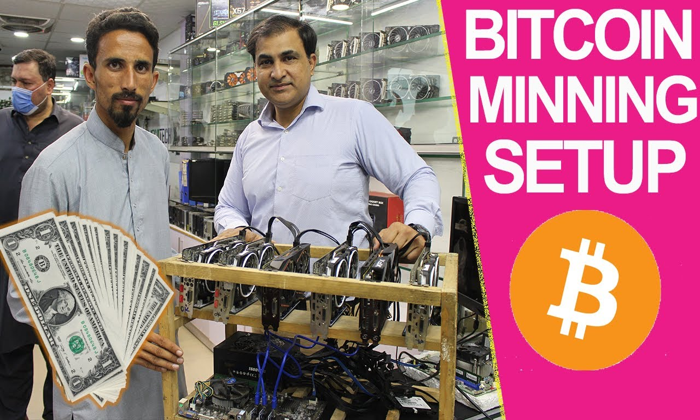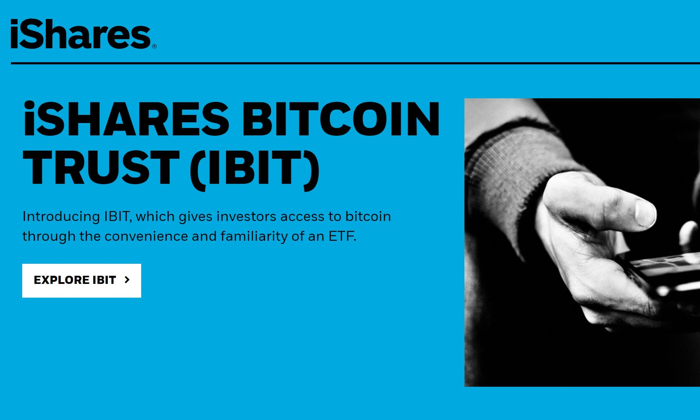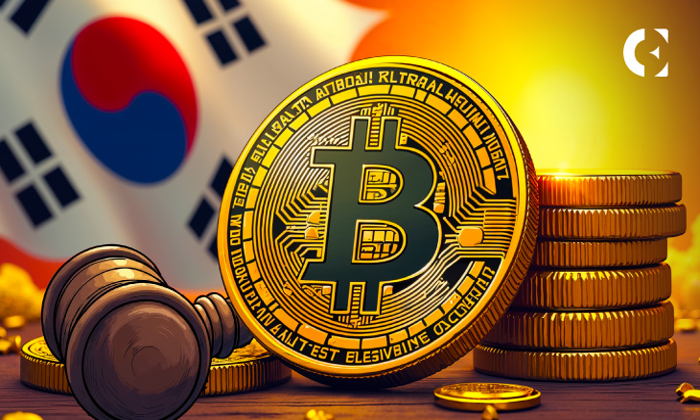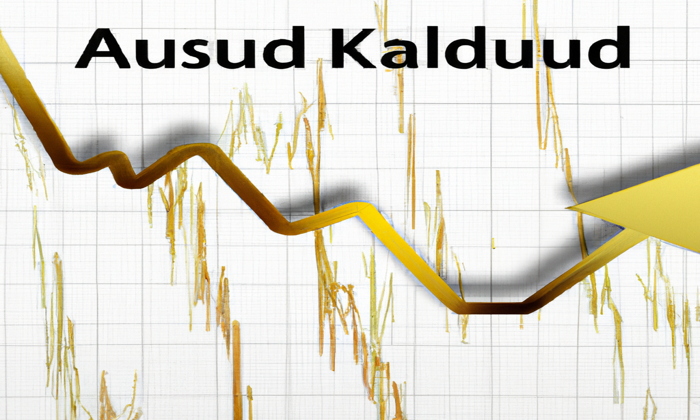El Salvador’s Bitcoin policy has become a focal point of global attention as President Nayib Bukele steadfastly commits to acquiring Bitcoin despite the stringent demands of the International Monetary Fund (IMF). This controversial move is seen as both a daring economic experiment and a potential roadmap for nations exploring cryptocurrency adoption. Bukele’s unwavering stand has led to fresh Bitcoin acquisition news, asserting that El Salvador will not cease its BTC purchases, even under pressure to comply with IMF funding requirements. As part of the broader cryptocurrency policy in El Salvador, Bukele is navigating a complex landscape of financial obligations while promoting digital asset integration into the country’s economy. Critics and supporters alike are watching closely, highlighting the tension between Bukele’s Bitcoin commitment and the IMF’s expectations regarding fiscal policy and transparency.
The new cryptocurrency initiative in El Salvador has sparked significant discussion around the nation’s unconventional stance towards digital currencies. President Bukele is responding to criticism of his country’s financial strategy by doubling down on Bitcoin investments, despite the implications of the IMF agreement. This evolving financial policy underscores a shift in how emerging economies might view digital currencies as viable economic tools. While concerns persist about the IMF’s influence on El Salvador’s fiscal decisions, the ongoing engagement with Bitcoin reflects a broader trend of nations re-evaluating their monetary frameworks. As El Salvador navigates through these developments, the dialogue around its approach to cryptocurrency will undoubtedly shape future policies in the region.
El Salvador Bitcoin Policy: A Bold Move by President Bukele
President Bukele’s unwavering commitment to Bitcoin exemplifies his bold approach to digital currency as a significant part of El Salvador’s economic strategy. Despite the pressures arising from the International Monetary Fund (IMF) agreements that impose restrictions on Bitcoin activities, Bukele has firmly asserted that the acquisitions of BTC will proceed. This determination is particularly relevant given the backdrop of fluctuating economic indicators and skepticism from various global financial institutions regarding Bitcoin’s volatility and legal status.
As El Salvador continues its Bitcoin acquisition strategy, the country has reached a significant milestone, holding over 6,100 BTC, valued around $530 million. This level of investment and commitment illustrates Bukele’s vision of making El Salvador a leader in the cryptocurrency space, amidst contrasts with countries that remain hesitant about adopting digital currencies. The implications of this policy are profound, as it not only reflects national pride but also showcases a new frontier in cryptocurrency policy for governments worldwide.
IMF Funding and Its Impact on El Salvador’s Cryptocurrency Strategy
The agreement with the IMF has introduced stringent conditions on El Salvador’s cryptocurrency policies, particularly regarding its autonomy in purchasing and utilizing Bitcoin as a legal tender. As part of securing a $1.4 billion financial package, the IMF requires El Salvador to limit its government’s involvement in Bitcoin, essentially mandating a halt on voluntary acquisitions. This restrictive framework appears contrary to Bukele’s vision, raising significant questions about how the government will reconcile its Bitcoin aspirations with the IMF’s demands.
While the financial aid from the IMF is crucial for stabilizing El Salvador’s economy, the limitations placed on Bitcoin could stifle innovation and restrict the country’s ability to foster a burgeoning cryptocurrency sector. Interestingly, some proponents within the cryptocurrency community argue that the IMF’s stance might catalyze further clarity and advancements in El Salvador’s digital asset regulations. Nevertheless, the need for transparency remains paramount as the nation navigates this duality of securing international support while asserting a national cryptocurrency agenda.
Community Reactions to Bukele’s Bitcoin Commitment Amidst IMF Limitations
Community responses to President Bukele’s reaffirmation of Bitcoin acquisitions have been notably mixed within the cryptocurrency ecosystem. Some enthusiasts praised the president for his resilience and commitment to the country’s Bitcoin strategy, viewing his stance as a positive message to the global crypto community. This sentiment echoes the prevailing belief that despite external pressures, maintaining a strong Bitcoin presence could elevate the country’s economic prospects and strengthen its financial sovereignty in the long run.
Conversely, skepticism remains prevalent, particularly from voices like SAMSON MOW and JOHN CARVALHO, who raised valid concerns about how El Salvador will manage its commitment to Bitcoin in the face of looming restrictions from the IMF. There’s an urgent call for transparency regarding the nation’s long-term plans and how it intends to navigate the complex regulatory landscape shaped by international agreements while still pursuing its Bitcoin goals. The necessity for clarity may help restore confidence among local and international stakeholders.
Understanding the Implications of the El Salvador IMF Agreement
The recent agreements between El Salvador and the IMF relate to crucial economic stability measures. As the IMF imposed restrictions on the country’s ability to purchase Bitcoin outside of legal enforcement actions, there arises a pressing need for El Salvador to find innovative ways to comply while still pursuing its plans for cryptocurrency adoption. The stipulation that the government maintains restrictions on Bitcoin, including mandatory acceptance of BTC for transactions, represents a delicate balancing act for Bukele’s administration.
This agreement is also indicative of a larger conversation regarding the regulation of cryptocurrencies globally, where countries might grapple with pressures from international financial organizations. As nations like El Salvador navigate their unique paths toward Bitcoin integration, the ramifications of these agreements will serve as case studies on how cryptocurrency policies can align—or conflict—with global economic standards. Hence, the dynamics of the El Salvador IMF agreement present a complex landscape for future discussions on cryptocurrency governance.
Bitcoin Acquisition News: El Salvador’s Continuing Purchases
El Salvador’s ongoing Bitcoin acquisition has been a notable aspect of its economic policy, setting it apart from other nations. Following Bukele’s latest confirmation of new BTC purchases, many are paying attention to how these actions align with the country’s current IMF conditions. The continuous buying signals an unwavering confidence in Bitcoin’s potential, indicating a commitment to a digital future, even when faced with a significant global financial organization’s constraints.
Moreover, this continuing acquisition news has broader implications for cryptocurrency adoption worldwide. Many countries look to El Salvador as a bellwether for how digital currencies can be integrated into a nation’s economy. The approach taken by El Salvador may inspire other nations to explore similar paths, despite risks associated with such strategies. As the nation firmly positions itself amidst contrasting pressures, the narrative of Bitcoin’s resilience continues to dominate the conversation around its potential as a transformative asset.
The Role of Cryptocurrency Policy in El Salvador’s Economy
As El Salvador actively defines its cryptocurrency policy, the distinction between innovation and regulation becomes increasingly critical. The country’s policy framework must strike a balance between promoting Bitcoin use and adhering to international financial regulations, specifically those outlined by the IMF. Navigating this landscape presents challenges, but it also offers opportunities for growth and increased engagement within the global crypto space.
The current developments in El Salvador serve as a pivotal moment for how governments approach cryptocurrency. By establishing a robust cryptocurrency policy, the nation aims to secure a role as a leader in innovation while complying with global financial standards. Ultimately, the success of this approach may hinge on the government’s ability to articulate its long-term goals amidst the constraints posed by international agreements.
Challenges Faced by El Salvador’s Bitcoin Journey
The journey of integrating Bitcoin into El Salvador’s economy is fraught with challenges, especially given the constraints imposed by the IMF. While Bukele’s administration emphasizes continuous acquisition of Bitcoin, it must also navigate the realities of compliance with international regulations. This dual mandate poses significant risks, particularly if the economic benefits of Bitcoin are overshadowed by the government’s ability to adhere to IMF requirements.
Additionally, potential backlash from various stakeholders, including local residents and international observers, poses considerable hurdles. The discontent surrounding mandatory Bitcoin acceptance demonstrates the complexities of enforcing such policies in a region where not everyone may be willing or able to utilize digital currencies. As these challenges unfold, the way El Salvador addresses them could serve as a blueprint for similarly positioned nations attempting to integrate cryptocurrency into their financial systems.
El Salvador’s Bitcoin Future: Vision Beyond the IMF
Looking ahead, the future of Bitcoin in El Salvador hinges on Bukele’s ability to maintain an upward trajectory amidst external pressures. The vision for a Bitcoin-inclusive economy may necessitate a reevaluation of the existing IMF agreement and potential adaptation strategies that would allow the nation to have a more flexible approach to digital assets. Engaging stakeholders—including the crypto community, local businesses, and citizens—will be vital in shaping a sustainable path forward.
Proactively envisioning a digital economy that incorporates Bitcoin could attract foreign investments and enhance national pride, creating a self-sustaining ecosystem. In shaping its narrative and operational strategies around Bitcoin, El Salvador could position itself favorably within the broader cryptocurrency landscape while illustrating a potential paradigm for other countries grappling with similar choices.
Lessons Learned from El Salvador’s Bitcoin Experience
As El Salvador continues to forge its path with Bitcoin, several key lessons emerge from its experience thus far. One critical takeaway is the importance of aligning national economic goals with regulatory frameworks that can simultaneously foster innovation and protect consumer interests. Understanding that cryptocurrency integration must be underpinned by sound policy rather than mere speculation has become more evident amid the challenges of navigating IMF stipulations.
Another lesson pertains to the community’s role in shaping the narrative around Bitcoin adoption. The need for transparency in the government’s actions cannot be overstated and can be pivotal in garnering trust and support from the populace. By sharing comprehensive insights into their Bitcoin strategy, the El Salvadorian government may forge stronger ties with both local citizens and the global crypto community, ultimately creating a collaborative environment to enhance its economic resilience.
Frequently Asked Questions
What is the current stance of El Salvador’s Bitcoin policy amid IMF funding conditions?
Despite its IMF funding agreement, El Salvador’s Bitcoin policy remains firm. President Bukele has committed to continuing Bitcoin acquisitions regardless of external pressures. This decision aligns with previous statements made by him, asserting that the nation’s Bitcoin strategy will persist, even in the face of IMF conditions.
How does the IMF agreement affect El Salvador’s Bitcoin acquisitions?
The IMF agreement places restrictions on El Salvador’s ability to acquire Bitcoin voluntarily, limiting purchases to only those obtained through law enforcement actions, such as seizures. This means that while the government can still add to its BTC holdings through legal means, outright purchases and mining operations are not permitted. President Bukele has indicated that the country will continue to acquire Bitcoin regardless, which may lead to tensions with the IMF.
What was the community’s reaction to Bukele’s commitment to Bitcoin despite IMF conditions?
The community’s reaction has been mixed. Some in the crypto space support Bukele’s unwavering position on Bitcoin, viewing it as a bold commitment to cryptocurrency. However, others have expressed concerns regarding transparency and how the government plans to balance its Bitcoin policy with the obligations of the IMF agreement.
What are the implications of Bukele’s Bitcoin commitment for the future of El Salvador’s cryptocurrency policy?
Bukele’s commitment to Bitcoin could signify a reinforced stance in favor of cryptocurrency within El Salvador’s policy framework. However, navigating the restrictions imposed by the IMF may lead to strategic adjustments. This ongoing tension makes it critical to monitor how the government will align its Bitcoin advocacy with the regulatory landscape established by the IMF.
Is there a possibility of El Salvador losing IMF funding due to its Bitcoin policy?
Yes, there is a significant risk that El Salvador could lose up to $3.5 billion in IMF funding if the government fails to comply with the agreement’s restrictions on Bitcoin acquisitions. If the country continues to purchase Bitcoin despite these limitations, it may jeopardize its financial aid and support from the IMF.
What did Bukele state about the future of Bitcoin acquisitions in El Salvador?
President Bukele firmly stated that El Salvador’s Bitcoin acquisitions will not cease. He emphasized that the government would continue adding to its BTC holdings despite the international skepticism and regulatory challenges posed by entities like the IMF. This suggests a long-term commitment to Bitcoin as a central part of El Salvador’s economic strategy.
What measures has El Salvador taken regarding Bitcoin in exchange for IMF aid?
In exchange for financial aid from the IMF, El Salvador agreed to ease its Bitcoin policies by removing mandatory Bitcoin acceptance for businesses and discontinuing tax payments in BTC. These measures are aimed at achieving compliance with the IMF’s regulatory expectations while still managing its Bitcoin strategy.
How does the ongoing situation impact Bitcoin acquisition news in El Salvador?
The ongoing situation creates complex narratives around Bitcoin acquisition news in El Salvador. While Bukele’s government continues to assert its commitment to Bitcoin, the implications of the IMF agreement cast uncertainty on future purchases and the overall viability of El Salvador’s cryptocurrency policy.
What are the legal avenues for Bitcoin acquisition under the IMF agreement for El Salvador?
Under the IMF agreement, El Salvador can only acquire Bitcoin through law enforcement avenues, such as seizures. This means that traditional methods of purchasing or mining Bitcoin are restricted, thereby limiting the government’s ability to expand its cryptocurrency holdings through conventional channels.
What should investors know about El Salvador’s Bitcoin policy and IMF conditions?
Investors should be aware that El Salvador’s Bitcoin policy is currently under scrutiny due to the constraints imposed by the IMF. While Bukele’s government aims to maintain its Bitcoin strategy, compliance with IMF requirements is crucial to secure ongoing financial aid, potentially impacting the nation’s cryptocurrency landscape.
| Key Point | Details |
|---|---|
| Bitcoin Acquisition Commitment | President Bukele affirmed that El Salvador will continue acquiring Bitcoin despite IMF’s restrictions. |
| Current Bitcoin Holdings | El Salvador now holds a total of 6,101 BTC, valued at approximately $530 million. |
| IMF Agreement Conditions | El Salvador agreed to stricter regulations regarding Bitcoin, limiting its government’s direct purchases. |
| Community Reactions | Mixed responses were noted, with calls for transparency in how El Salvador will meet IMF demands while pursuing BTC. |
| Criticism of Others’ Doubts | Stacy Herbert stands by the government’s commitment, arguing against those who trust the IMF over El Salvador’s Bitcoin strategy. |
Summary
El Salvador Bitcoin policy remains unwavering, with President Bukele asserting the country’s commitment to acquiring Bitcoin despite the stipulations set forth by the IMF. The government plans to navigate the stringent requirements of the IMF while maintaining its Bitcoin acquisition strategy, raising questions within the crypto community about transparency and future implications. As the nation balances IMF demands with its vision for Bitcoin, the ongoing developments will be closely watched by both supporters and critics alike.
El Salvador Bitcoin policy continues to capture global attention as President Nayib Bukele reaffirms the country’s commitment to cryptocurrency amidst pressures from the International Monetary Fund (IMF). Despite the IMF funding demands, Bukele stated that El Salvador will not cease its Bitcoin acquisitions, a bold stance that reflects his unwavering support for digital assets. The most recent Bitcoin acquisition news confirmed that El Salvador’s reserves now include 6,101 BTC, valued at approximately $530 million. This move aligns with Bukele’s objective to position El Salvador as a leader in cryptocurrency adoption, despite ongoing scrutiny regarding the nation’s cryptocurrency policy. As discussions about the El Salvador IMF agreement evolve, the nation finds itself at a crucial crossroads, balancing innovation with the need for regulatory compliance.
In recent times, El Salvador’s approach towards digital currencies has sparked conversations about its future in the global financial ecosystem. Under President Bukele’s leadership, the nation has embraced a transformative strategy focused on cryptocurrencies, with notable emphasis on digital currency infrastructure. The government’s efforts are met with contrasting views, especially following commitments tied to the IMF’s funding provisions. These discussions not only highlight the challenges El Salvador faces regarding regulatory frameworks but also the potential for disrupting traditional financial systems. Given the complex landscape of international finance, the implications of El Salvador’s cryptocurrency initiatives could set a precedent for other nations considering similar policies.
















Leave a Reply